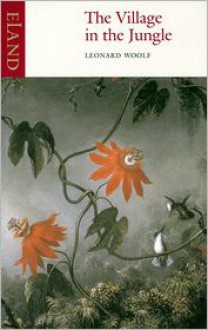The Village in the Jungle
by:
Leonard Woolf (author)
‘All jungles are evil, but no jungle is more evil than that which lay about the village of Beddagama.’ In a literary career spanning more than 60 years the highly prolific man of letters Leonard Woolf published hardly any fiction. Of the little he did produce, by far the most important was The...
show more
‘All jungles are evil, but no jungle is more evil than that which lay about the village of Beddagama.’ In a literary career spanning more than 60 years the highly prolific man of letters Leonard Woolf published hardly any fiction. Of the little he did produce, by far the most important was The Village in the Jungle (1913), a debut novel set in Ceylon (now Sri Lanka) of such literary accomplishment that it should have propelled him on a career to match his great contemporaries D H Lawrence or Thomas Hardy. Instead Woolf chose to devote himself to publishing fiction by his more famous wife, Virginia, while running the famous Hogarth Press. Despite being virtually unknown The Village in the Jungle is an important classic, rare among English novels of the Edwardian era. While most take the viewpoint of the coloniser, Woolf tells his tale of native life in a colonial outpost from the point of view of the colonised. It is also a tale of superstition and murder set against a backdrop of the jungle that threatens to swallow everything up in its path. The Village in the Jungle is the work of a young writer of immense skill and maturity. His flawlessly lyrical and intense prose brings the jungle chillingly to life, while his innate understanding of the Sinhalese people garnered from seven years as a colonial administrator on the island gives the novel real authenticity. Widely regarded as one of the best books in English about Ceylon, The Village in the Jungle is regarded in Sri Lanka today as a national treasure. Despite the early success of The Village in the Jungle Woolf’s only other fiction about Ceylon is a slim volume of three short stories called Stories of the East (1921), also available from Classic Travel Books.
show less
Format: paperback
ISBN:
9780907871293 (0907871291)
Publish date: in 1913, and written
Publisher: Virginia Woolf's husband."/>
Pages no: 209
Edition language: English

Maybe I'm reading it differently but he represents the "people" as less than people. Dehumanizes them in the grossest of manners. This may either be intentional or this may just be the way he saw the natives but either way, I hated it. Understand I read this in the context of anti-colonial discourse...

